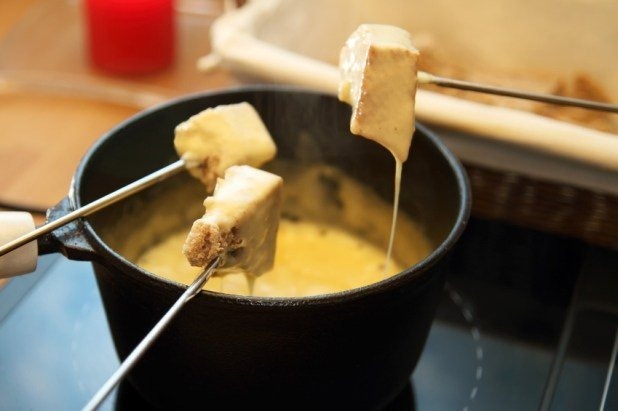The Ins And Outs Of International Etiquette
In a world where one-third of the people eat with their fingers, one-third with chopsticks, and one-third with forks and knives, it gets pretty tricky knowing how to handle yourself at tables abroad. Sometimes you can really, really offend your host and his entire family by doing something you believe wholly innocent, yet to them is a horrible display of uncivilized behavior.
Here are some etiquette guidelines so that even your fiancée's father will like you...
-Never tip in a British pub. (Photo: Flickr/Kake Pugh)
-In England always pass a decanter of Port to the left, as done in Her Majesty's Royal Navy, until it arrives back at your host's place. Never let it sit in front of you.
-In England during teatime you should not pour your own, but ask instead for the hostess or waiter to do so.
-In Hungary never clink glasses for a toast. Back when Austrian troops occupied Budapest, they'd always do that just before shooting another Hungarian.
-In Turkey place one half of your napkin on the table and leave the other hanging down. Use only the right hand to pick up food and wipe that hand on the napkin. Never use your left hand, which is used for quite another purpose.
-In Arab countries, belching is considered a sign of your enjoyment of a meal. So feel free to let go.
-In Egypt, pour your tea into the cup until it spills out into the saucer.
-When served shish kebabs in the Middle East, steady the skewer between the tines of your fork above the food items, then slide the skewer out. (Photo: Flickr/mahbub kabir)
-In Morocco, tables may be covered with a sheet of plastic onto which one throws the bones and other inedible parts of the meal.
-If you ever find yourself eating with Bedouins, never gnaw the meat from the bone. Tear the meat off (with your right hand!) and toss the bone away
-In France, the only foods you may eat with your fingers are frites, asparagus, raw shellfish, and frogs' legs.
-In Marseilles, France, the home of bouillabaisse, never eat the fish and the broth together. They are eaten as separate courses.
-In France, never ask for leftovers from your meal at a restaurant to be packed to go. Eat it or leave it.
-In China, loudly slurping your tea is considered a rational way to cool it off rather than burn your lips and mouth.
-In China, use chopsticks to take food from the serving plate and then place the food atop your rice — never from plate to your mouth. Do not rattle your chopsticks on the rice bowl, which means you and your descendants will always be poor.
-In Thailand, don't ask for chopsticks; Thais use forks and spoons to eat.
-In Greece, never arrive less than half an hour late for dinner, which never begins before 9 PM.
-In Italy, do not wait for everyone to be served his pasta before eating yours. "Amici e pasta, se non sono caldi, non sono buoni" means "If friends and pasta are not warm, they are not good." (Photo: Flickr/nickdawg2000)
-In Italy, do not ask for a tablespoon to help you swirl spaghetti onto your fork. Only a non-Italian would do that.
-Never bring a gift of wine to a hostess in Italy or Portugal, where it is considered an insult to the host's generosity.
-In Japan, eat one mouthful of rice for every two of meat. Do not lean your chopsticks on the food plates or bowls. Never pass food to another person with chopsticks, because at funerals Buddhists pass cremated bones of the deceased between family members.
-In Russia do not sip vodka. Knock it back, and only when the host offers a toast.
-When served caviar, do not ask your Russian host for condiments like onion or chopped egg, which Russians consider a barbaric way to mask the purity of sturgeon roe. Caviar is eaten on blini pancakes smeared with melted butter or with a mother of pearl spoon. (Photo: Flickr/jlastras)
-In Switzerland, when dipping your fork into fondue, never let the tines protrude through the bread or food and touch the fondue itself. Also, bite off the food from the fork without your mouth touching the tines.
Originally published on July 14, 2011.
